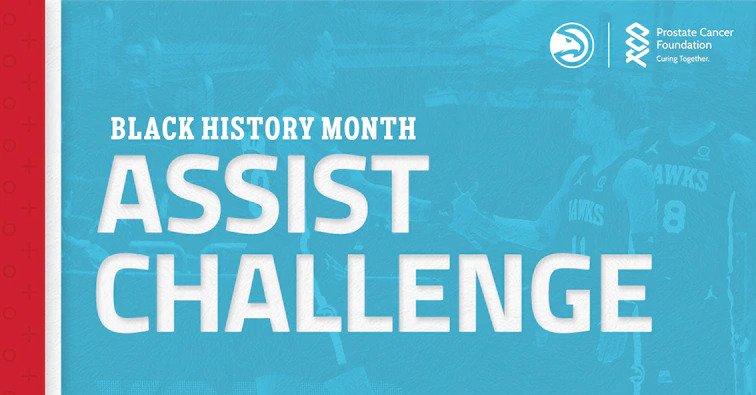During Tuesday’s game, presented by Emory HEalthcare, the Atlanta Hawks announced the launch of the third annual Black History Month Assist Challenge. The announcement featured Hawks Vice Chairman of the Board and Naismith Memorial Basketball Hall of Famer Grant Hill and Bradley Carthon, MD, PhD of Winship Cancer Institute of Emory University, and detailed the importance of bringing greater awareness to prostate cancer through a video called Uncomfortable Questions.
One in eight men will be diagnosed with prostate cancer in his lifetime, and African American men are 76 percent more likely to develop prostate cancer than a Caucasian man.
The Black History Month Assist Challenge was launched in 2019 and raised over $318,000 to support life-saving research through the Prostate Cancer Foundation in addition to generating millions of impressions through various forms of media to promote the work of PCF. This February, for every assist tallied by the Hawks, the Hawks Foundation will donate $250 to the Prostate Cancer Foundation. The challenge begins during the Hawks’ February 1 game against the Los Angeles Lakers.
Advertisement
“We are thrilled and honored that the Hawks have joined our efforts in reaching out to save men’s lives,” said Christine Jones, COO, PCF. “This past year has put a spotlight on the need for more health equity programs to solve the cancer rate disparity issue in Black men. During Black History Month, the NBA will help us bring awareness about the facts regarding prostate cancer, and what men need to do to know their risks and numbers.”
The Chicago Bulls and Phoenix Suns have joined the Hawks in a pledge to participate.
“Teaming up with the Hawks for this campaign continues our mission to lessen the burden of cancer and ultimately improve the overall health and wellness of the citizens of Georgia and beyond,” said Adam Marcus, interim executive director at Winship Cancer Institute.
The Winship Cancer Institute is where Emory Healthcare clinicians provide comprehensive care through an extensive network of facilities across the metro area including medical oncology, surgical oncology, radiation oncology, diagnostic imaging, and other services.
